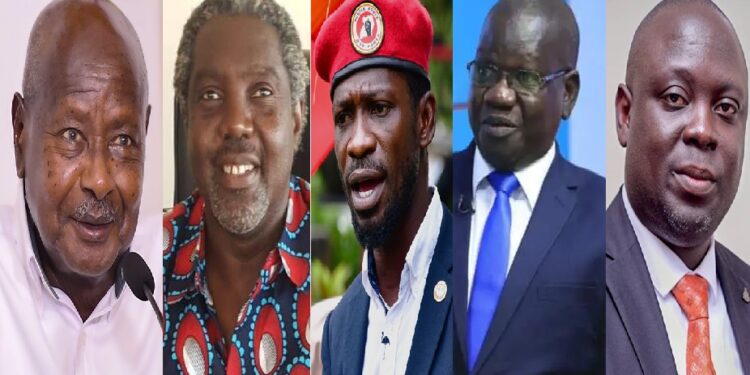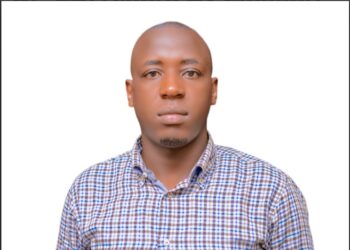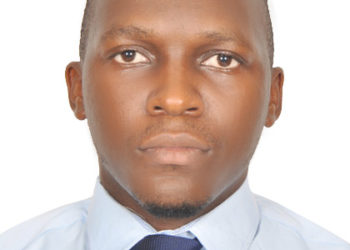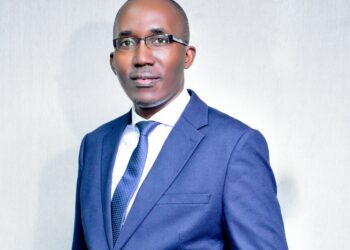The Electoral Commission (EC) on Wednesday, July 31, 2024, unveiled the roadmap to the 2025-2026 general elections. Yes, we are fast approaching another cycle of national elections, an all-important affair in the administration and governance of our country which exercise demands everyone’s attention.
Every five years, Uganda holds general elections at which a President, Members of Parliament (MPs), Local Council (LC) leaders from the district/city to the cell (village) level are elected. General elections are the height of democracy in practice. Every citizen is called upon to partcipate as the best opportunity to shape their country’s future.
According to the EC, there are about 3.3 million positions for the take at all levels. The Commission will start on the process to form new administrative units and undertake other preparatory processes including compiling an up-to-date voters register, which will be displayed between April 18 and May 8, 2025.
Next year (2025) will be momentous. It’s the year within which nomination of candidates at all levels will take place. Key dates include nominations for presidential candidates to end by October 3 and nomination of Parliamentary candidates to end by September 17. Ugandans will go to the polls between January 12 and February 9, 2026.
Everything about the 2026 general elections indicates that they will be bigger, in more ways than one, that previous elections; there will be more voters (including diaspora and inmates), more elective offices, more administrative units, more polling stations and upgrade of systems and electoral infrastructure in the era of ICTs.
And if we expect more voters to be eligible to vote including from “constituencies” that have not previously been considered such as diasporians and prisoners, then we all have to prepare on time to prevent avoidable challenges that could make effects of Covid-19 look minor. The EC is to be commended for setting in motion activities to deliver a free and fair, and well organised election in line with its Constitutional mandate.
Since 2005-2006, Uganda runs a multiparty dispensation, meaning that the electoral cycle in process will be organised under the arrangement of parties taking center stage in competing, with independents on the side. Therefore, how prepared are the respective political parties to fit in the EC’s general roadmap?
Before the EC nominates candidates, political parties must have concluded their internal party primaries from which the Commission draws nominees to take up the respective party tickets or cards. Out of the registered or competing political parties, how many have set out their roadmaps and gone ahead to implement activities accordingly? Most, it not all, may have been caught offguard by the EC’s programme, and what we expect is a rushed programme as they attempt to fit in within the national electoral plan. It’s advisable to commence the election process much earlier for efficiency and to minimise challenges. Elections are a predictable exercise coming at a regular interval (of five years). It is an act of negligence and unseriousness on the side of party leaders whenever they fall back on preparedness yet there is the whole of five years to make necessary plans.
As a country, while celebrating the gift and opportunity of exercising our democratic rights, we always aim to organise each subsequent election better than the previous one. We must have cleaner voter registers, we must have transparent internal party primaries, we must have genuine candidates, we must have a more civically aware population, better harmonized electoral and campaign programmes, creating enough time for stakeholders to dialogue on areas of improvement.
How many political parties know their membership and have a proper member register/voter register? NRM compiled a register early this year and traditionally has a standing structure said to touch every inch of the country, while some parties are Kampala/social media based. NUP has done member mobilisation and appointed focal persons in some administrative units of the country. Are these internal elections or the process is still ahead? FDC has had a tough season, with a bitter internal split between the Najjanakumbi (the legal wing) and Katonga. The Katonga group led by Dr. Kizza Besigye announced a plan to form a new political party. Will they go that route against a time squeeze at hand or they will head back to Najjanankumbi and attempt to wrest power from the Nandala-Amuriat faction? Whichever way, isn’t it a tough call that spells disadvantage as the 2026 bells toll?
In 2021, NUP competed as a political party for the first time and managed to storm Parliament and some local councils, even edging out FDC from its dominant position in opposition. It’s one thing to win an election one time but it can’t be won by luck the second time. It takes a level of organization and foresight to maintain a lead or build on it. Therefore, 2026 will be a big test for NUP, not forgetting how the Kyagulanyi-Mpuuga rift is likely to play out if not addressed maturely. If they remain under one umbrella and the split camps compete internally, there would be sharper post-electoral differences that would require time to address and settle grievances. Are DP, UPC, ANT any better?
As the EC implements its Strategic Plan (2022/23 – 2026/27) for continuous improvement in the management of elections, it needs a strong and complementary partnership from the groups for whom the elections are organised and which benefit from them. Free, fair and credible elections which engender good governance and security for more stable and progressive nation require the involvement and contribution of the different stakeholders. Some of the complaints that come up after every election cycle are the making of different players other than the EC. If you do not unite and organise from within your own parties, how do you expect to convince the Ugandan population that you can unite, organise and secure them going forward?
Preparation and timeliness are equal to certain victory!
The author is the Deputy Press Secretary to the President of Uganda
Contact: kirundaf2@gmail.com
0776980486/0783990861
Do you have a story in your community or an opinion to share with us: Email us at editorial@watchdoguganda.com













